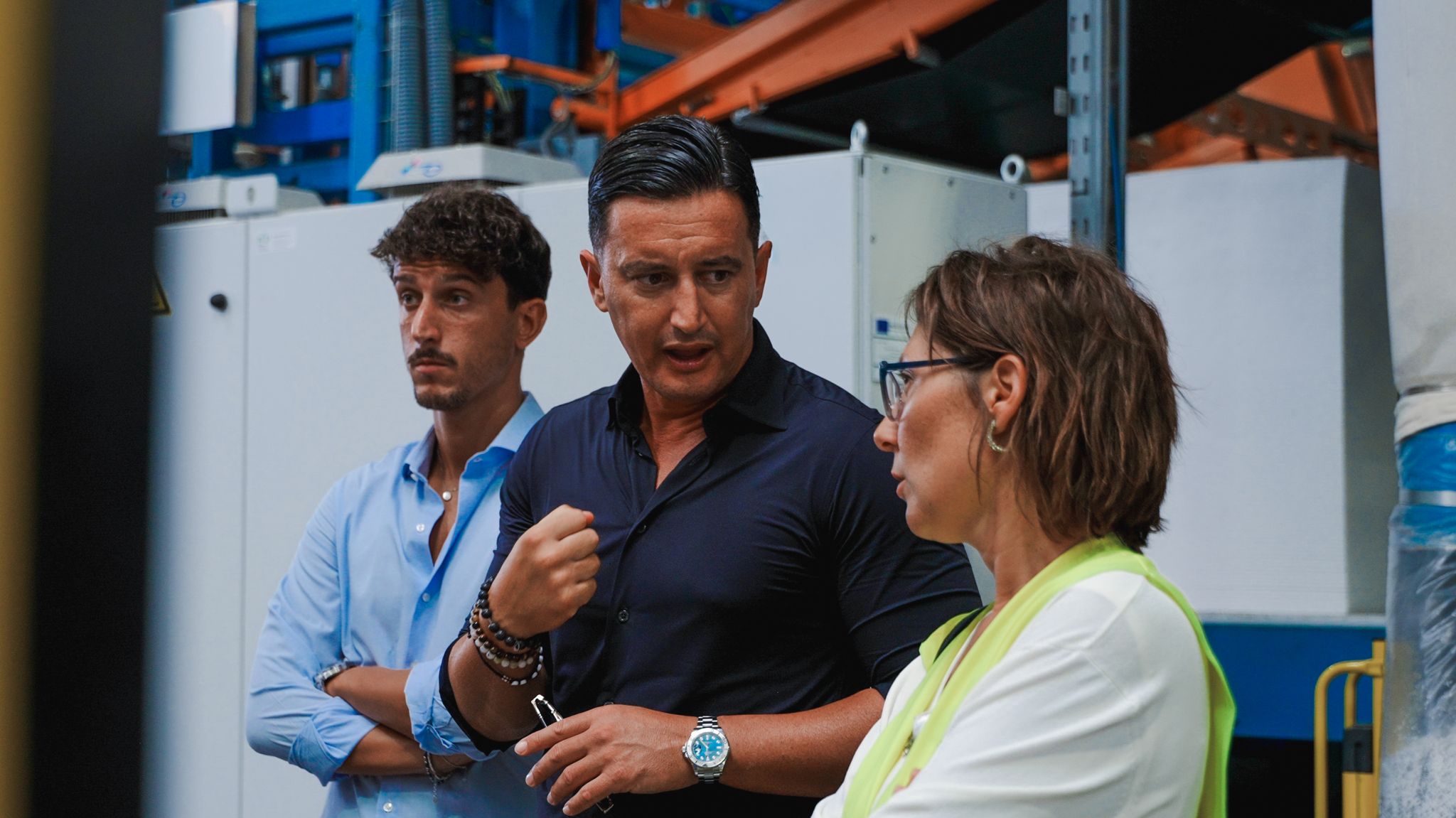Emanuela Gallo, EU Technical Affairs Manager at EUMEPS, visited Isolkappa’s production site in Italy for discussions with CEO Giuseppe Rinaldi. The visit provided an opportunity to observe operations on the ground and exchange views on the role of expanded polystyrene (EPS) in Europe’s energy transition, sustainability goals, and circular economy.
EPS in the Green Transition
 The visit began with a tour of the production site, where Emanuela had the chance to follow the various manufacturing phases and assess how Isolkappa applies technological solutions to improve efficiency and quality. This provided a clear picture of how EPS is produced and managed in practice, highlighting the company’s focus on both operational performance and environmental responsibility.
The visit began with a tour of the production site, where Emanuela had the chance to follow the various manufacturing phases and assess how Isolkappa applies technological solutions to improve efficiency and quality. This provided a clear picture of how EPS is produced and managed in practice, highlighting the company’s focus on both operational performance and environmental responsibility.
The discussions then moved to the wider policy context. EPS was recognised as a material that supports Europe’s objectives for climate neutrality and energy efficiency. “EPS has a central role in Europe’s transition plans because of its versatility, ease of installation, and compliance with environmental requirements,” Emanuela explained.
The relevance of the recently adopted European Green Homes Directive was also discussed, underlining how insulation products such as EPS will be needed to reduce energy demand in the building stock and contribute to the Green Deal targets.
Transparency and Collaboration
 Beyond technical aspects, the meeting also focused on the importance of building trust through transparent communication. Both EUMEPS and Isolkappa share the view that data and verifiable evidence are needed to counter misinformation and misleading claims about materials. “By investing in transparency and innovation, we can strengthen a shared approach that benefits both the industry and policymakers,” Emanuela stressed.
Beyond technical aspects, the meeting also focused on the importance of building trust through transparent communication. Both EUMEPS and Isolkappa share the view that data and verifiable evidence are needed to counter misinformation and misleading claims about materials. “By investing in transparency and innovation, we can strengthen a shared approach that benefits both the industry and policymakers,” Emanuela stressed.
The dialogue also examined the regulatory and industrial challenges that lie ahead, including how the sector can adapt to evolving EU requirements while continuing to demonstrate the long-term value of EPS solutions. Collaboration between associations and companies was identified as essential to ensure that these challenges are addressed collectively.
The exchange confirmed that joint efforts are key to maintaining product quality, delivering reliable solutions, and ensuring that the industry remains aligned with Europe’s sustainability objectives.
Conclusion
The visit to Isolkappa generated practical ideas and confirmed the importance of joint efforts between industry and associations. It demonstrated how cooperation at national and European levels can help align technical work with policy objectives, supporting energy efficiency, circularity, and sustainability in construction.
pictures credit: Isolkappa

